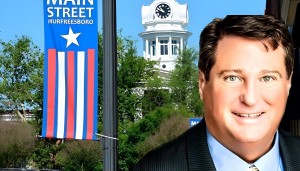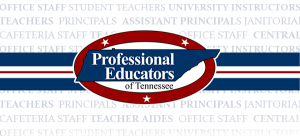Tennessee's education system is undergoing significant changes as the 2025 legislative session concludes. The 2024 Nation's Report Card, released in January 2025, revealed that Tennessee students are excelling, surpassing national averages in reading and math for both 4th and 8th grades. Despite ongoing debates over school vouchers, this positive trend in proficiency rates since 2022 highlights the state's continued investment in public education.
This legislative session's significant development was the passage of Governor Bill Lee’s Education Freedom Act, establishing a universal school voucher program. Starting in the 2025-26 school year, this law will allocate $7,000 in taxpayer funds for up to 20,000 students to attend private schools, with plans to make it available to all K-12 students by 2026, pending budget evaluations. While supporters view this as a significant advancement, critics express valid concerns about accountability, particularly regarding the absence of mandatory testing for voucher recipients and the potential impacts on public school resources.
An announcement on April 5, 2025, indicated that tuition at Tennessee's community colleges and Colleges of Applied Technology will increase, averaging 3.25% and 3.26%, respectively, for the upcoming fiscal year. This adjustment aims to balance funding needs to maintain accessible higher education.
Additionally, on April 7, 2025, the Tennessee Higher Education Commission announced an expansion of the Advise TN program, which aims to improve guidance for students pursuing higher education and career paths. This demonstrates the state's commitment to postsecondary success.
On the same day, the Tennessee House passed a bill requiring public schools to implement the “success sequence” curriculum starting in the 2026-27 school year. This curriculum outlines steps toward economic achievement, focusing on high school graduation, employment or further education, marriage, and parenthood. Proponents argue that it fosters family stability, while critics argue it oversimplifies the complexities of economic challenges.
In a controversial legislative move, a new proposal allows Local Education Agencies (LEAs) and public charter schools to deny enrollment to current students in the U.S. This action could risk federal funding, although the actual effects remain unclear. Reductions in enrollment could impact the Tennessee Investment in Student Achievement (TISA) funding formula, but advocates assert that savings from not educating these students may offset potential funding losses. Complicating matters, Title VI of the Civil Rights Act of 1964 prohibits discrimination based on national origin, which could challenge the legality of such restrictions.
On the athletic front, lawmakers are proposing a rule allowing student-athletes to transfer schools once without facing eligibility restrictions. House Bill 25 and Senate Bill 16 have gained traction, although the Tennessee Secondary School Athletic Association (TSSAA) has expressed opposition, warning that these bills could lead to legal disputes. The fate of this legislation now depends on the House's final vote.
At the beginning of the session, we posed several key questions, including: What policy approaches can impact teacher supply, demand, and retention? How can Tennessee better support its teachers and students? Teacher attrition, a major contributor to teacher shortages, disrupts student learning and increases costs for schools and districts. What practical strategies can be implemented to address teacher attrition? How can we tackle critical infrastructure needs? Most of these questions remain unanswered.
As the 2025 legislative session ends, education continues to be a central focus, with attention on key bills affecting education policy. Although the session is ending, further education-related proposals are expected despite the lack of precise details.
##
JC Bowman is the Executive Director of Professional Educators of Tennessee, a non-partisan teacher association.











